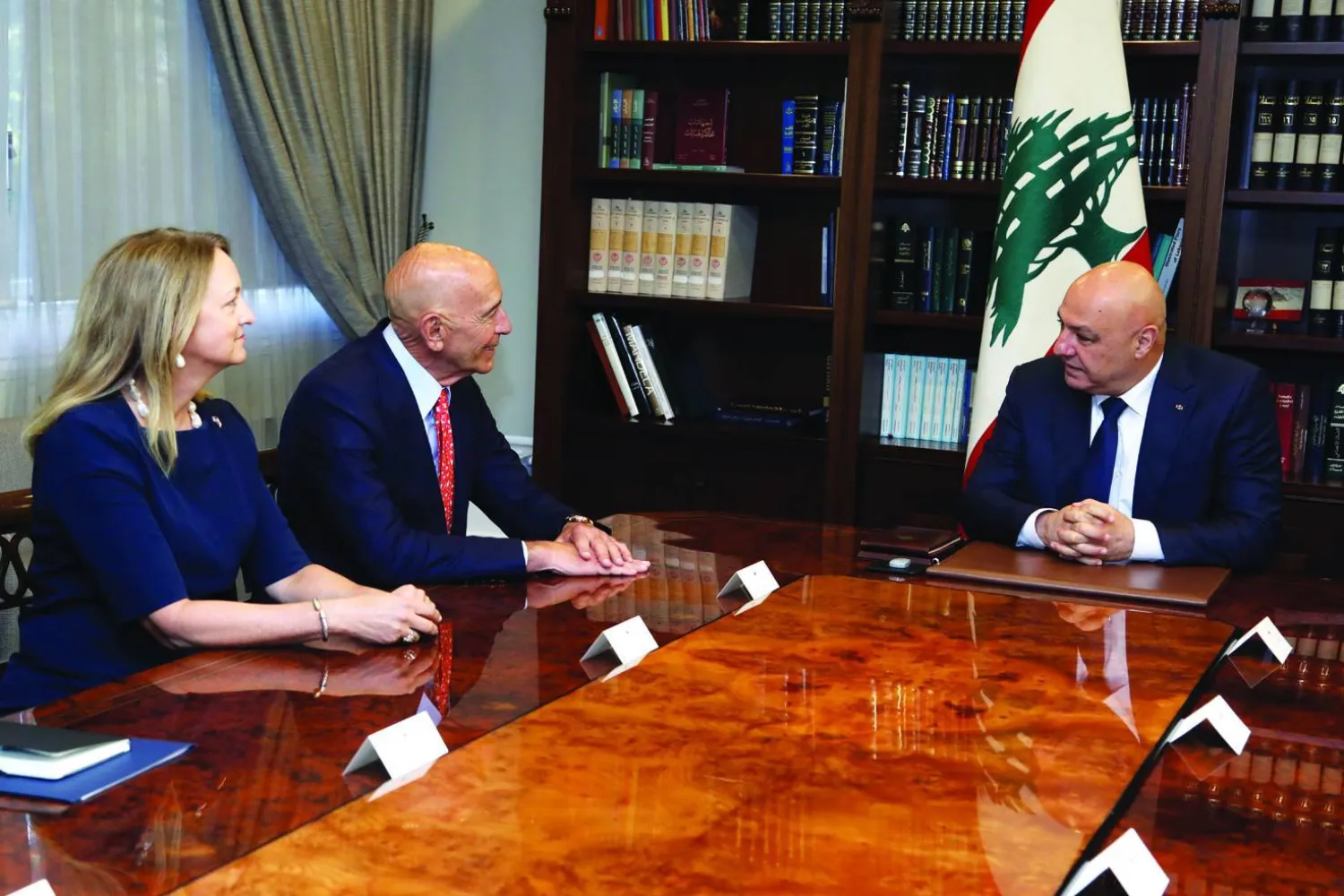US Ambassador to Türkiye Tom Barrack, President Donald Trump’s special envoy to Syria, is prioritizing the demarcation of the Lebanese–Syrian border during his meetings in Beirut this week with Lebanese President Joseph Aoun, Parliament Speaker Nabih Berri, Prime Minister Nawaf Salam, and Army leadership.
The border issue is expected to feature prominently in Lebanon’s response to proposals Barrack presented, as he considers it essential for establishing a mechanism to implement the ceasefire agreement with Israel and asserting Lebanese sovereignty under UN Resolution 1701.
According to Lebanese ministerial sources speaking to Asharq Al-Awsat, Saudi Arabia recently hosted a Lebanese–Syrian meeting that defused tensions and ended clashes across the overlapping areas between the two countries in northern Bekaa. Riyadh’s mediation created a favorable climate to advance border demarcation along the roughly 375-kilometer frontier from north to east.
Saudi sponsorship of this process, along with measures by the joint Lebanese–Syrian committee to prevent further clashes, strengthened Washington’s interest in supporting these efforts. Much of the violence has stemmed from rival smuggling networks once protected by the former Syrian regime and used for trafficking Captagon into Lebanon and beyond.
Calls to demarcate the border date back to the National Dialogue Committee’s first session in 2006, convened by Berri. At Hezbollah’s request, the term “demarcation” was replaced with “delineation,” arguing it was more appropriate for relations between “brotherly nations.” Nevertheless, the issue remained unresolved as Syria refused to engage in formal negotiations, especially before the assassination of Prime Minister Rafik Hariri, when Damascus consistently blocked references to completing the Taif Agreement or withdrawing Syrian troops from Beirut.
Later attempts during Saad Hariri’s premiership under President Michel Sleiman also stalled when President Bashar al-Assad declined to cooperate, citing other priorities. Illegal crossings continued to proliferate, justified as necessary for Hezbollah’s movement to avoid Israeli monitoring and to maintain unregulated “military routes” for arms smuggling.
Sources revealed that in a Damascus meeting co-chaired by Hariri and Assad, Lebanon requested not only border demarcation but also a review of bilateral agreements under the Treaty of Brotherhood to address their pro-Syrian bias. While the status of the occupied Shebaa Farms was briefly raised, it was withdrawn to avoid jeopardizing talks. Though an agreement was reached to start demarcation from the northern border, Syrian officials later backed out, citing preoccupation with the Jordanian border.
Lebanon has since prepared a detailed file with maps and coordinates, ready to support renewed negotiations under President Ahmad al-Sharaa. Officials believe the time is now ripe to demarcate the border and end agreements that once facilitated Syria’s dominance over Lebanon.









